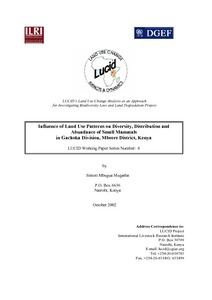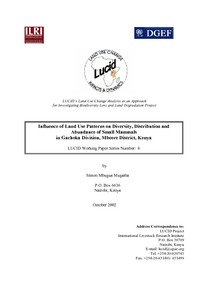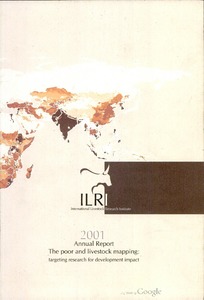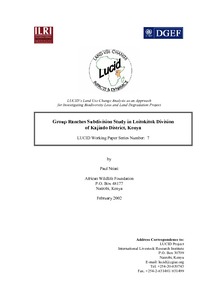Location
Vision, mission and strategy
ILRI's strategy 2013-2022 was approved in December 2012. It emerged from a wide processof consultation and engagement.
ILRI envisions... a world where all people have access to enough food and livelihood options to fulfil their potential.
ILRI’s mission is... to improve food and nutritional security and to reduce poverty in developing countries through research for efficient, safe and sustainable use of livestock—ensuring better lives through livestock.
ILRI’s three strategic objectives are:
- with partners, to develop, test, adapt and promote science-based practices that—being sustainable and scalable—achieve better lives through livestock.
- with partners,to provide compelling scientific evidence in ways that persuade decision-makers—from farms to boardrooms and parliaments—that smarter policies and bigger livestock investments can deliver significant socio-economic, health and environmental dividends to both poor nations and households.
- with partners,to increase capacity among ILRI’s key stakeholders to make better use of livestock science and investments for better lives through livestock.
This is ILRI’s second ten-year strategy. It incorporates a number of changes, many based on learning from the previous strategy (2000–2010, initially produced in 2000 and modified in 2002), an interim strategy (2011–2012) and an assessment of the external and internal environments in which the institute operates.
Members:
Resources
Displaying 891 - 895 of 1152Interventions in animal health: economic analysis of the adoption of herd health risk management programmes in smallholder dairy farms in central Thailand
This paper examines the adoption of two herd health control programmes designed for dairy smallholders in Central Thailand - for mastitis and for reproductive disease. The impact of adoption on private and social welfare is measured using the Policy Analysis Matrix. For adopters of the mastitis and reproductive health programmes, milk production increased by 173% and 48% respectively. Annual returns per cow were 166% and 154% greater respectively than the control group returns. Disease was significantly reduced on all adopter farms, and highest reductions were seen on adopter farms.






